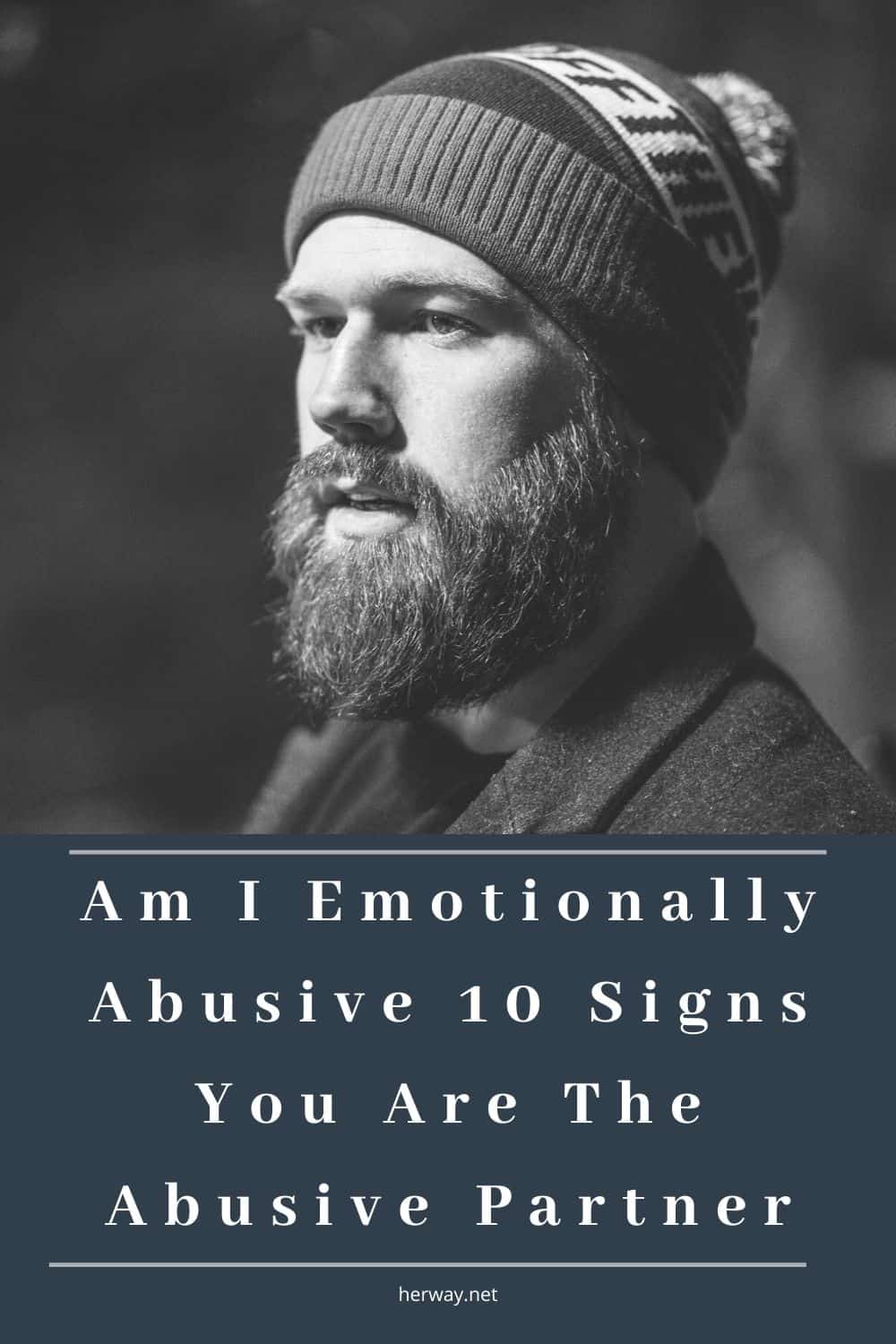Am I Emotionally Abusive? 10 Signs You Are The Abusive Partner
Even though many people think of sexual and physical abuse as the only forms of abuse, the truth is quite different.
Abuse has numerous faces and domestic violence, emotional and verbal abuse are just some of them.
There are many ways to help you realize that you are the victim of emotional abuse but have you ever asked yourself: “Am I the emotionally abusive one?”
Don’t act so surprised because turning into an emotional abuser is easier than you might think and it can happen to literally anyone.
This is why we are presenting you with a set of statements and questions which you can ask yourself or mark as true or false to determine if you are the abusive partner in your relationship.
She does everything to please you

One of the first signs that you might be emotionally abusive is the fact that lately, you’ve noticed that your romantic partner does everything to please you.
I know you see this as a sign of her love for you but why is she really doing it?
Is she scared that you’ll leave her if not everything goes your way? Does she nod her head to everything you say because she is afraid of confronting you or speaking her mind?
If the answer is yes, then she is without a doubt a victim of your emotional abuse, even though neither of you is aware of it.
She has self-esteem problems

Low self-esteem can be due to numerous factors which are not always related to the romantic relationship.
And even though I am not telling you to take all the responsibility for your girlfriend’s self-confidence issues, you should definitely wonder if you are the one making it worse.
Do you praise her and push her forward so she feels better about herself? Or do you constantly feed her insecurities and break her spirit?
One of the things all emotional abusers do is make their victim think like nothing they do is ever enough and make them wonder why they are not enough.
And if this is something you also do, everything is clear.
She complains about your sex life

Your sex life is considered to be great only when both partners enjoy it with the same intensity.
But things are different in your relationship.
Your girlfriend has been accusing you of being too selfish in bed and when you come to think of it, the truth is that you don’t try too hard to please her.
And even though you probably don’t know it, this is also a form of emotional abuse.
Your partner should never feel used in bed and you are not the only who should be enjoying yourself.
You avoid productive arguments

The way you act when it comes to arguments says a lot about your role in the relationship.
One of the signs that you are an emotional abuser is that you completely avoid fights.
Instead of talking things through, you give your other half the silent treatment or you act in a passive-aggressive manner.
Or maybe you exaggerate while arguing? You don’t aspire to resolve the problem. Instead, you take everything to a personal level.
You just can’t control yourself and when you and your girlfriend argue, you keep insulting and humiliating her.
Either of these two approaches is a form of emotional abuse in a relationship.
Remember—it is the two of you against the problem and not against each other.
You’ve been accused of ‘gaslighting’

Has your girlfriend ever accused you of gaslighting her? Or have you been trying on purpose to make her believe some things that aren’t really true?
Have you ever caught yourself twisting the truth or trying to convince your partner that some events played out differently?
Have you ever tried to assure her that she did or said some things that she actually didn’t?
If you’ve answered positively to all or some of these questions, it is a clear sign of your emotional abuse.
You enjoy being in control

All abusive relationships have a distorted power relation because emotional abuse is nothing more than an attempt at being in control of another human being.
When you come to think of it, this is exactly what you’ve been trying to do with your girlfriend.
You have a hidden desire to run every aspect of her life.
You want to be in charge regarding her career and finances, regarding the people she hangs out with, the way she dresses and even regarding her attitudes and life views.
These are all characteristics common to every abuser out there, whether we are talking about emotional or physical violence.
You have a hard time apologizing

Another thing common to most abusers is that they don’t have the ability to apologize.
Even when an abuser knows that he did something wrong, he’ll never state that he is indeed sorry for his words or actions.
On the other hand, if you are an emotional abuser, you’ll constantly put your partner in a position where she needs to apologize and feel sorry for literally everything.
You avoid responsibility

An inability to apologize almost always goes hand in hand with avoiding responsibility.
One of the signs of your abusive behavior is the fact that you never consider yourself guilty about anything that happens in your relationship.
Even when you admit that your behavior was an overreaction, you justify yourself by saying that you were provoked and that whatever you did or said was just a reaction.
You accuse her of being too sensitive

Whenever you mistreat her or insult her or whenever you use one of your tactics to bring her down, your girlfriend thinks of it as the end of the world.
She starts crying and she wants you to know how much pain you’ve caused her.
All of this made you think that she is just being an overly dramatic crybaby. But the truth is quite different.
The truth is that this is only her reacting to the fact that you are mentally, emotionally and psychologically abusing her.
She is not being too sensitive–you are being too aggressive.
You behave differently in public

The people around them usually have a completely different image of abusers.
They think of them as loving and caring boyfriends, husbands and fathers.
And this is so because most abusers pretend to be something they are not when they are in public and they treat their romantic partner completely differently when they are alone.
Have you ever caught yourself being completely different in public to how you are behind closed doors? If you have, it’s time to rethink your behavior.
Remember, if you don’t consider your behavior to be abusive, then you won’t change it in front of other people because there is nothing you should be ashamed of.







